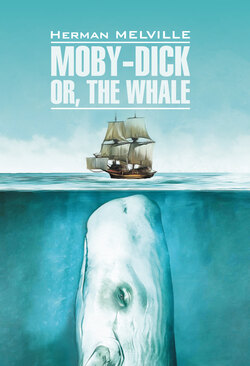Читать книгу Moby-Dick or, The Whale / Моби Дик, или Белый кит. Книга для чтения на английском языке - Герман Мелвилл, Герман Мелвилл - Страница 3
Etymology
Оглавление(Supplied by a late consumptive Usher to a grammar school)
The pale Usher – threadbare in coat, heart, body, and brain; I see him now. He was ever dusting his old lexicons and grammars, with a queer handkerchief, mockingly embellished with all the gay flags of all the known nations of the world. He loved to dust his old grammars; it somehow mildly reminded him of his mortality.
“While you take in hand to school others, and to teach them by what name a whale-fish is to be called in our tongue, leaving out, through ignorance, the letter H, which almost alone maketh[1] up the signification of the word, you deliver that which is not true.”
Hakluyt.
“Whale. * * * Sw. and Dan. hval. This animal is named from roundness or rolling; for in Dan. hvalt is arched or vaulted.”
Webster's Dictionary.
“Whale. * * * It is more immediately from the Dut. and Ger. Wallen; A. S.[2] Walw-ian, to roll, to wallow.”
Richardson's Dictionary.
JiI, Hebrew.
xntos, Greek.
Cetus, Latin.
Whoel, Anglo-Saxon.
Hvalt, Danish.
Wal, Dutch.
Hwalt, Swedish.
Whale, Icelandic.
Whale, English.
Baleine, French.
Ballena, Spanish.
Pekee-nuee-nuee, Feegee.
Pehee-nuee-nuee, Erromangoan.
1
maketh – ycm. makes. Для английского языка XIX века характерно прибавление окночаний th и st к глаголам (см. здесь и далее).
2
A. S. (Anglo-Saxon) – англосаксонский
